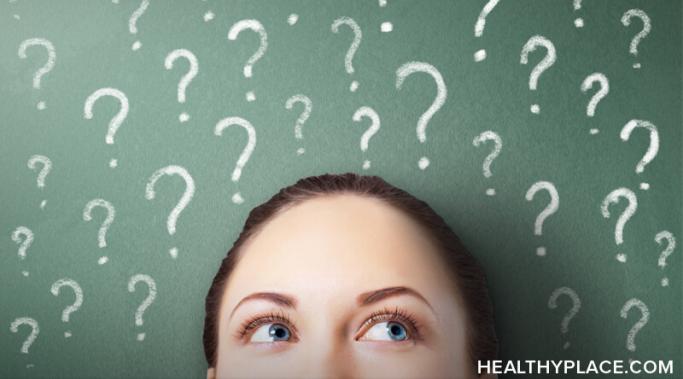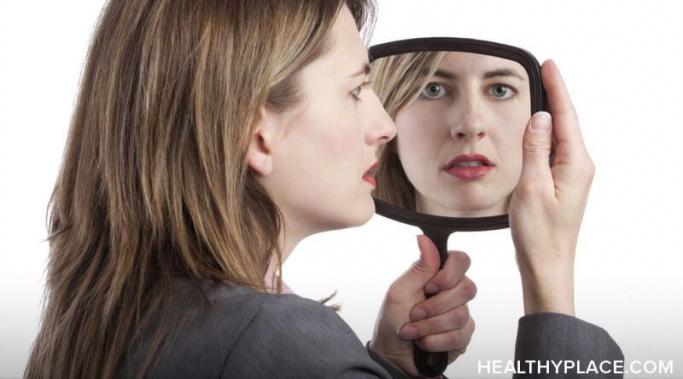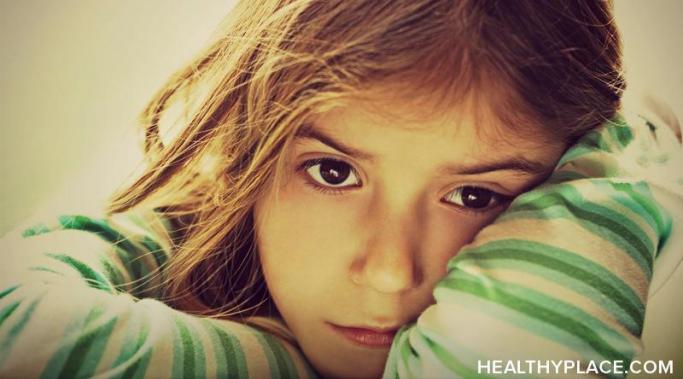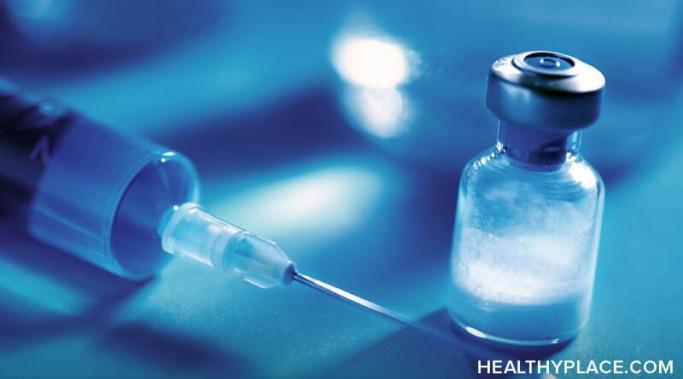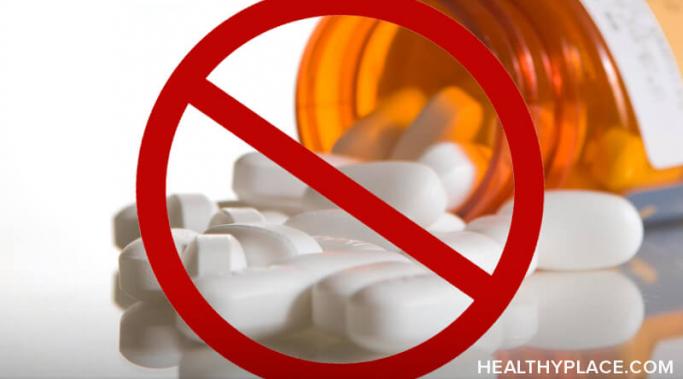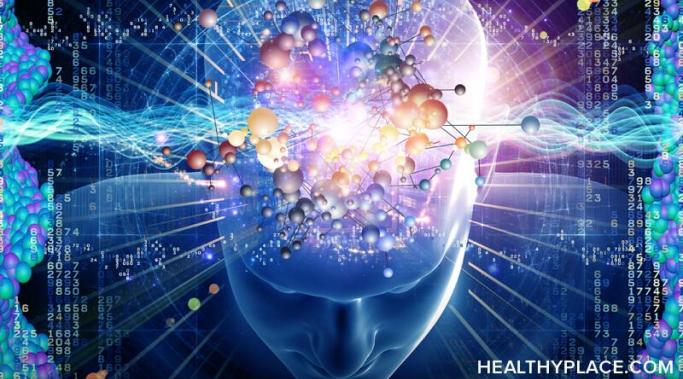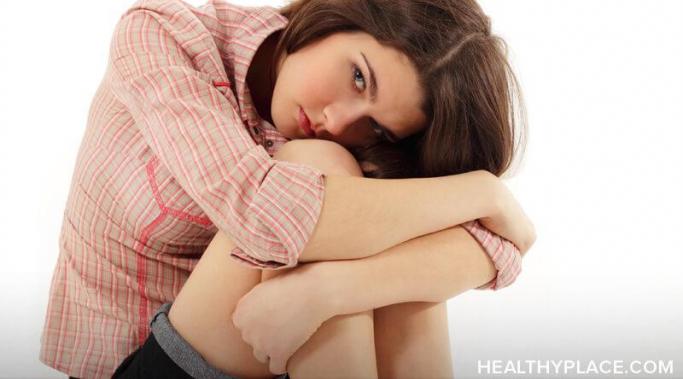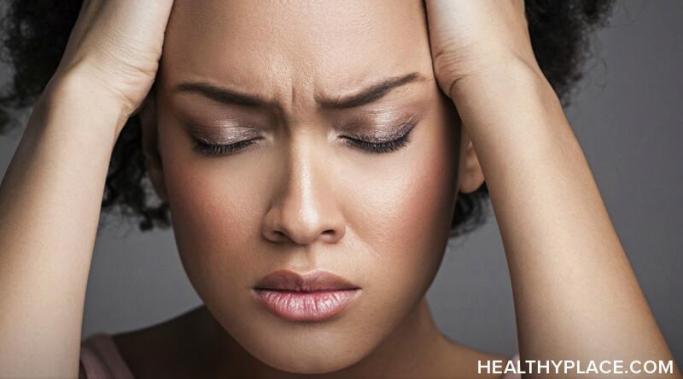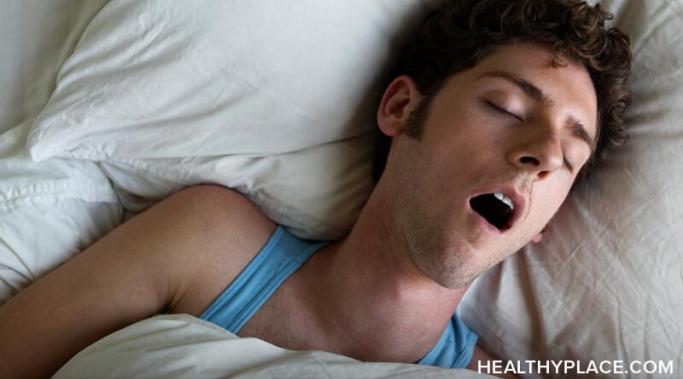If you have bipolar disorder, there's a good chance you've wondered, "Is it my fault I have bipolar disorder?" In my experience, most of us wonder this at some point, usually early after diagnosis -- I know I certainly did. There are multiple reasons this seems to come up for people. If you're wondering if your bipolar disorder is your fault, read on.
Understanding Mental Illness
It's hard to know how bad a bipolar episode is when you're living it. That's because it's your brain that is sick. It is your perception that is skewed. Other people may look at you and think it's clear how sick you are and how truly bad a bipolar episode is, but these people are fundamentally missing the problem: you're so sick that you can't see how sick you are.
Because of bipolar and depression, I have a lack of motivation. Lack of motivation is not technically a symptom of depression according to the "Diagnostic and Statistical Manual of Mental Disorders, Fifth Edition" ("DSM-5"), but in my experience, it's highly correlated. I must admit, I harshly judge this as being a personal flaw. Here's a look at how depression and a lack of motivation are linked and how a lack of motivation isn't really a personal flaw at all.
COVID-19 vaccine refusal could be related to depression. I know there might not seem to be a link there, but I suspect there is. Depression could affect how a person feels about getting a vaccine for a number of reasons, and it may lead all the way up to vaccine refusal thanks to depression.
It's not uncommon for people with bipolar disorder (and other mental illnesses) to think they're fine and they don't need bipolar medication. There are several reasons for this, and it can happen at any time during treatment. This thought pattern can truly hurt people. So, let's take a look at why some people with bipolar disorder think they don't need bipolar medication.
I thought for a very long time that I could outthink bipolar disorder. I thought, if bipolar disorder is in my mind, then my mind can defeat it. I thought that if I just read the right book, learned the right coping skill or understood the right philosophy, I could outthink the bipolar disorder. And this is not an uncommon feeling. It's one of the reasons that people refuse medications or go off their medications -- whether they express it in those words or not. People think -- errantly -- that bipolar disorder is all in their head, and so their head can fix it.
Do you think you can deal with bipolar disorder alone? Do you think you can keep your bipolar a secret and just do what it requires by yourself? If so, you're not alone. Many people try, sometimes for years, to handle bipolar disorder alone. They do Google searches and online research about bipolar and its treatments and somehow that makes people think they can do it on their own. But I have news for you: you can't deal with bipolar disorder alone.
Medical consensus in psychiatry is critical. Many people do have many opinions, of course, but understanding psychiatric medical consensus is what makes all the difference. If you have 1000 psychiatrists in a room, after all, you can be guaranteed someone is going to disagree on any subject, but who do you believe, the 999 or the one? And is a medical consensus in psychiatry worth more than the opinion of psychiatric patients?
At one time, I was obsessed with my own suicide. This isn't a particularly pleasant admission or memory, but it's true. Thoughts of suicide would run through my head every single day. And to be clear, this suicide obsession, wasn't simple teen ennui or just mere "thoughts" that were transienty. It was very distressing and mostly out of my control.
There is a horrible relationship that people with bipolar disorder live with: bipolar affects sleep and sleep affects bipolar disorder. And neither one of them likes each other. It's like being followed around by a bickering couple that occasionally starts screaming at each other. I downright hate it. So let's take a look at how bipolar affects sleep and how sleep affects bipolar disorder (and you) and what you can do about it.
